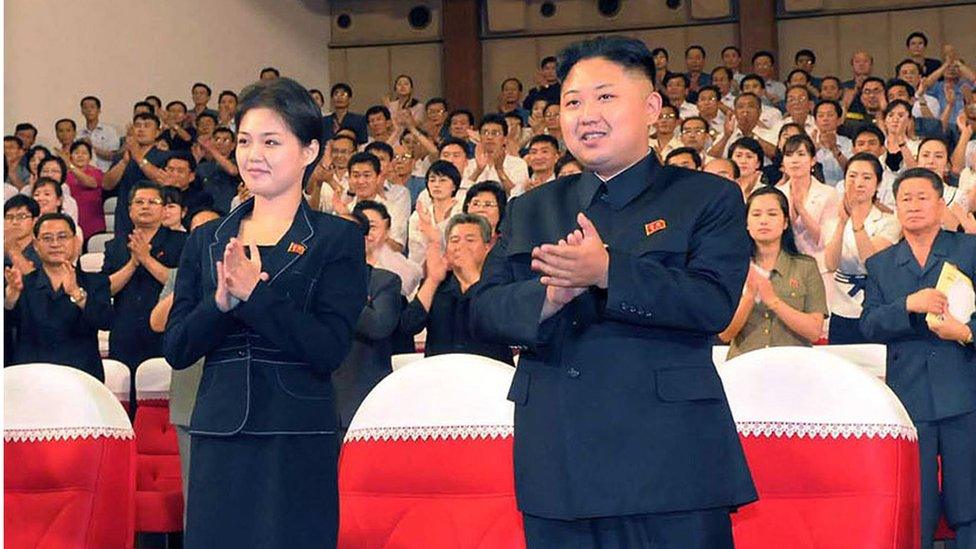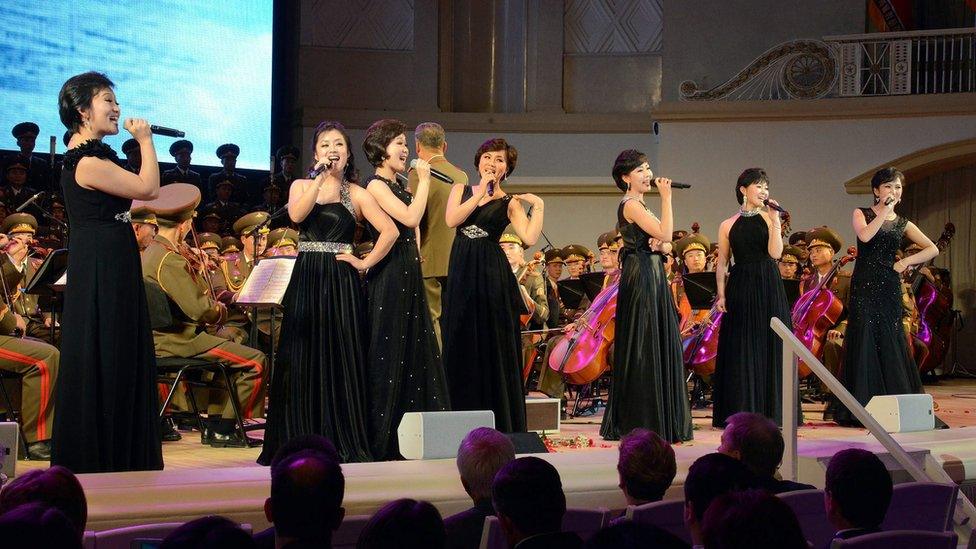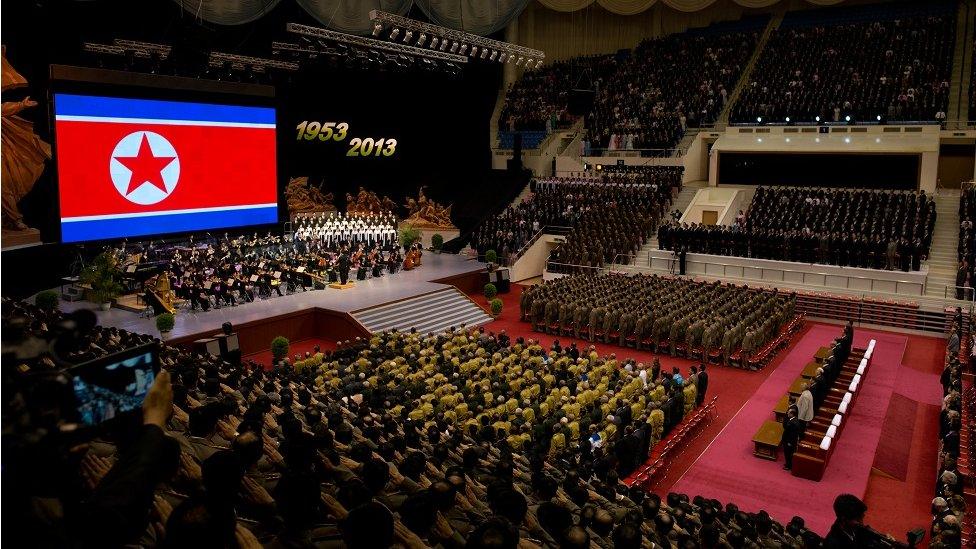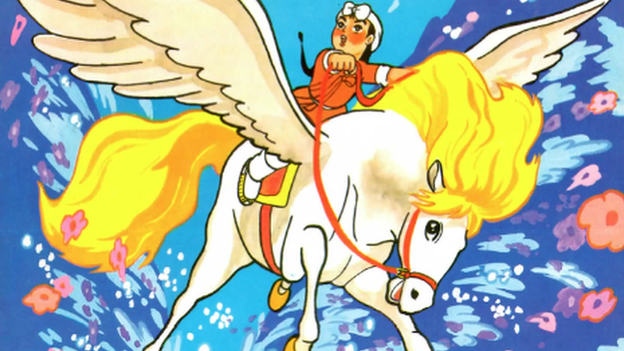Moranbong, the non-vanishing North Korean band
- Published

North Korea's leader Kim Jong-Un is a fan of the band - one of the country's most popular
A popular North Korean band has just taught the chatterers and pundits a lesson - don't read too much into a disappearance.
For two months, there was feverish speculation about the fate of the Moranbong Band. Where was the all-female group? Had they been purged? Had they grown too popular for their own good?
The group hadn't been seen on television in North Korea since July, prompting pieces only this week about "purges" and people's "changing status".
"Kim Jong-un's favourite North Korean girl band vanishes", ran one headline last week. It echoed another: "Kim's favourite girl band vanishes 'to face the music'".
But no sooner had the cyber-ink dried, than the band were back on stage at a big concert in Pyongyang.
Out of favour?
Nobody knows quite why the Moranbong Band went quiet. Celebrity gossip is hard enough to decipher even in the open West, let alone North Korea.
All we know is that since July, the band's high-energy performances of Western classics and Pyongyang propaganda were relayed to audiences only as sound recordings covered by pictures of street scenes and the North Korean countryside.
In North Korea, when public figures disappear there is invariably speculation. Have they been executed? How did they fall out of favour with Kim Jong-un? But in this case it seems more innocent.
They certainly hadn't fallen out of favour with Mr Kim, who attended their performance on Monday with a visiting delegation from Cuba.
According to local media, the band played Cuban and North Korean favourites, including an orchestral version of Pyongyang is Best.
"At the end of the performance, stormy cheers of 'hurrah' resounded through the theatre," reported state media, adding: "Kim Jong-un warmly waved back, to the enthusiastic cheers of the performers and the audience."
Rival band?
Before the band's reappearance, speculation was heightened by the appearance of a new group called the Chongbong Band, formed in July, around the time Moranbong disappeared.

Chongbong was formed at the time Moranbong disappeared
North Korea's state news agency described the newcomer as a "promising revolutionary art troupe", leading South Korean media to speculate they had been created because the Moranbong Band had been disbanded.
It would have been a precipitous fall from grace for Moranbong since their first performance in July 2012.
Their style is quite Western, though alongside heavily produced numbers like My Way and the Theme from Rocky, sit more distinctly North Korean works like O My Motherland Full of Hope and We Think of the Marshall Day and Night (The Marshall being Kim Jong-un).
Their look, too, betrays Western influences. They wear mildly provocative outfits in a style sometimes called "conservative sexy" - short skirts and tight clothes that avoided breaching North Korean decorum but racy enough to get them compared with South Korea's sometimes raunchy girl bands.

Rumours of purges and executions have swarmed around North Korea's prominent musicians before
The multi-talented, typically 12-piece played electric violins, cellos, saxophones, synthesisers, drums and keyboards, as well as singing. But while their highly choreographed routines are glossy, their more recent performances have toned down the Western influences - perhaps significantly, perhaps not.
The positive press wasn't limited to Pyongyang, with even Western newspapers praising them as "North Korean leader Kim Jong-un's favourite guitar-slinging, miniskirt-sporting girl group. And these ladies know how to shimmy".
The UK's Daily Telegraph, external said the band were "not what you'd expect from an unfashionably totalitarian regime where grey is the new grey", though the reviewer added: "It could just about pass as a Eurovision entry from Azerbaijan."
Nasty things
What isn't known is the line-up of the band at Monday's performance. There is a focus on the band's leader, the violinist Sonu Hyang-hui. Was she back at the front or still absent?
As Adam Cathcart of the University of Leeds put it before the band's reappearance, "Sonu, a highly accomplished violinist, had previously been lauded as the closest thing North Korea had to an instrumental pop star. Her disappearance indicates yet more churn."
But perhaps presciently, he added that "while intelligence sources in Seoul have made it a habit (frequently inaccurately) to state that North Korean 'orchestral musicians' have faced execution squads, no-one has so far asserted that Ms Sonu, a regime favourite and public symbol, has faced the same fate".
There is a lesson to all this: don't over-speculate on what goes on inside North Korea. Lots of nasty things happen in North Korea, particularly in its political prison camps. But not all the horrible things reported are true.
- Published14 July 2015

- Published19 February 2014

- Published9 July 2012
